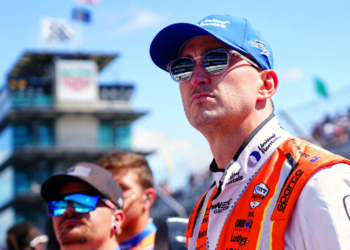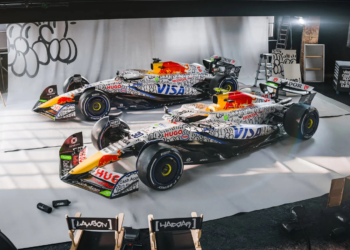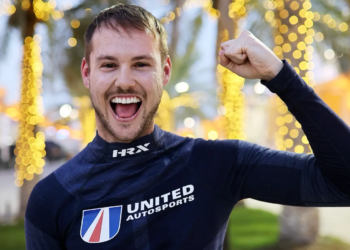Porsche LMP1 vice president Fritz Enzinger said there were mixed emotions of sadness and relief as the manufacturer pulled the curtain on its prototype racing programme in Bahrain.
The two Porsche 919 Hybrids finished second and third after encountering on-track drama during the race, but the #2 crew of Brendon Hartley, Timo Bernhard and Earl Bamber had already wrapped up the drivers' titles at the previous round.
Enzinger, who has spearheaded the Porsche LMP1 project after joining the company in 2011, helped orchestrate the development of the 919 with its innovative lithium ion hybrid system and 2.0 litre V4 engine.
“It was a feeling of sadness on the one hand," he said, "But on the other hand, I felt a great sense of relief that the project was so successful."
"With three Le Mans victories and six world championship titles in the last three years, we got as much out of it as we could."
"The success of such a project depends entirely on the people. Creating the prerequisites such as infrastructure and budget was my job, but the implementation, the creation of a team spirit and the passion that requires everyone always wanting to be even better in their area – that lies with each individual team member from various departments."
The first rendition of the 919 Hybrid suffered from teething issues during its inaugural season, and Enzinger admitted that the 2014 edition of the 24 Hours of Le Mans – the car's third race – came too soon.
However, 12 months later, Porsche returned to victory lane at the Circuit de la Sarthe for the first time in 17 years with Nick Tandy, Earl Bamber and F1 driver Nico Hulkenberg, and won twice more in 2016 and 2017.
"That [first] race came far too early for us," said Enzinger.
"We had only done a single simulation test, and with that we never managed more than six or seven hours. The whole test operation only really worked correctly from December [2014], after we had suppressed the vibrations."
"We had just two six-hour races behind us, and even those had not gone smoothly. The fact that we were in the lead at Le Mans after 20 hours raised hopes in the short term that were not reasonable, and the power train and the transmission defects did not come as a surprise.”
"Everybody assumed that the 17th overall victory in Le Mans was a certainty. At the time there was neither the infrastructure nor the experience at the level of the new LMP1 hybrid class."
"So that first Le Mans victory [in 2015] was definitely the best, because of how convincingly we won. We were only in our second season and were performing with such superiority."
"The focus has always been clear at Le Mans. Without victory at the 24 Hours, a world championship is only worth half as much. As early as the roll-out in December, we were always asking the decisive question: Is our package good enough for Le Mans? If the car could win there, it could also win [any] six-hour race."
Enzinger put the team's rapid rise down to the determined work of the engineers and back-room staff, and the maintenance of an effective working environment.
During times of need, the team adopted an "aggressive approach" to get the 919s up to the desired pace.
"I still remember our fourth race very well [at Austin 2014]," he said.
"We were not fast enough, there was a downpour and, most importantly, a loss of power in one car, so we did not get a place on the podium."
"But in our team, we never yelled and we did away with pointless allocation of blame back in the development phase."
"We were all able to carry forward our development philosophy together: In cases of doubt, we always opted for the more aggressive approach with the goal of making the 919 quick first of all and stable in the end. If the car finishes a race the first time, then it is also capable of winning – this was our credo.”
Porsche will continue to have a factory presence in the GTE world championship, but in 2018 Toyota will be the only hybrid manufacturer left in the LMP1 category.
After the Bahrain season finale, the Porsche 919 Hybrid's record stands at 17 wins from 34 races, 11 pole positions and five fastest laps, making it one of the most prolific prototype racers of all time.
"Today a very successful era comes to an end and this is the right time to say thank you," concluded Enzinger.
"Thanks to all our drivers who took every chance and delivered the highest performance – all ten LMP1 drivers have greatly impressed me many times over, regardless of the result. Also, thanks to everybody in the team for their relentless work and euphoria for the project."






